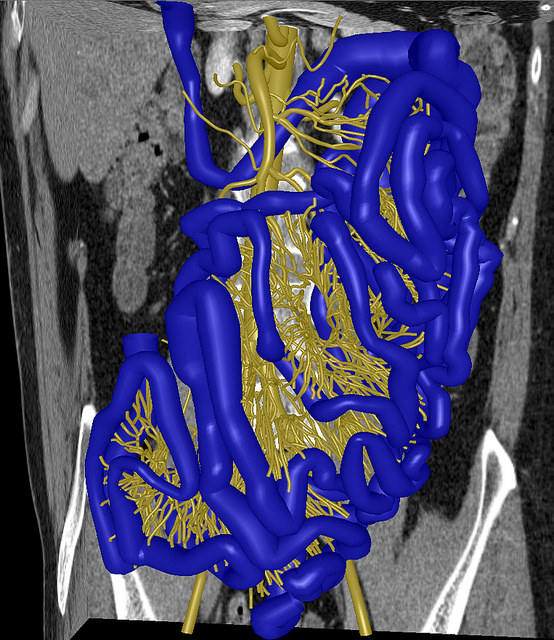
Prometheus Laboratories today launched a pair of new tests for gastrointestinal disorders—a diagnostic for adults with inflammatory bowel disease (IBD) being treated with Janssen Biotech’s Stelara® (ustekinumab), and a non-invasive serum test designed to measure and monitor mucosal healing status in patients with Crohn’s disease.
Prometheus Anser UST is intended to measure both serum drug concentrations and antidrug antibody levels from a single serum sample in adult IBD patients, with the goal of enabling their physicians to monitor the biologic and optimize treatment for IBD.
Anser UST joins the Anser portfolio of therapeutic drug monitoring tests marketed by Prometheus, a unit of Nestlé Health Science. In addition to Stelara, Anser markets diagnostics for use with Janssen Biotech’s Remicade® (infliximab) and its biosimilars; as well as for AbbVie’s multi-indication blockbuster drug Humira® (adalimumab), and Entyvio® (vedolizumab), which is marketed by Takeda Pharmaceutical’s Millennium Pharmaceuticals subsidiary and indicated for adults with moderate-to-severe Crohn’s and adults with moderate-to-severe ulcerative colitis.
“The availability of a drug-tolerant assay such as Anser UST represents an important advancement in managing patients with Crohn's disease,” said William J. Sandborn, M.D., Chief, Division of Gastroenterology and Professor of Medicine, University of California San Diego School of Medicine, in Prometheus’ statement announcing the test. “Crohn's disease is a complex condition and optimizing the available therapies is an important part of treatment.”
At the World Congress of Gastroenterology at the American College of Gastroenterology’s 2017 annual meeting, held October 13-18, 2017, in Orlando, FL, Dr. Sandborn co-authored a poster presentation detailing results from a study of Answer UST in 19 serum specimens from anti- tumor necrosis factor-alpha (TNFα) refractory Crohn’s disease patients receiving Stelara maintenance treatment. The median drug concentrations for clinical responders were significantly higher than for nonresponders (5.8 μg/mL vs 2.2 μg/mL)
“Though the number of patients was small, this study demonstrated the utility of serum UST monitoring,” according to the presentation.
Also today, Prometheus launched Prometheus Monitr™ Crohn's Disease, a new serum test that provides 13 biomarkers designed to measure and monitor mucosal healing status in Crohn's disease patients. The test can be used as an adjunct to endoscopy or as a stand-alone test between endoscopies, allowing for more frequent, noninvasive monitoring.
Monitr is designed to help healthcare providers more easily evaluate Crohn's disease patients who have suspected active disease in difficult-to-reach locations, such as the small bowel. Every Monitr test report provides a single Mucosal Healing Index Score intended for use in assessing and tracking disease activity over time.
According to Prometheus, clinical validation of Monitr has shown high accuracy and concordance rates with endoscopically visualized mucosal disease activity in adult Crohn's disease patients, regardless of disease location or selected treatment regimens.
“Monitr is a powerful patient counseling tool that addresses an unmet need. It can help healthcare providers discuss difficult treatment decisions with their patients,” Warren Cresswell, general manager and head of diagnostics at Prometheus, said in the Monitr launch statement.
Added Marla Dubinsky, M.D., chief of pediatric gastroenterology and hepatology and co-director of the Susan and Leonard Feinstein Inflammatory Bowel Disease Clinical Center at the Icahn School of Medicine, Mount Sinai: “We really need an objective way to view snapshots of the mucosa without frequent scoping. The more noninvasive biomarkers we can assay to objectively evaluate the mucosa, the better off patients will be.”











